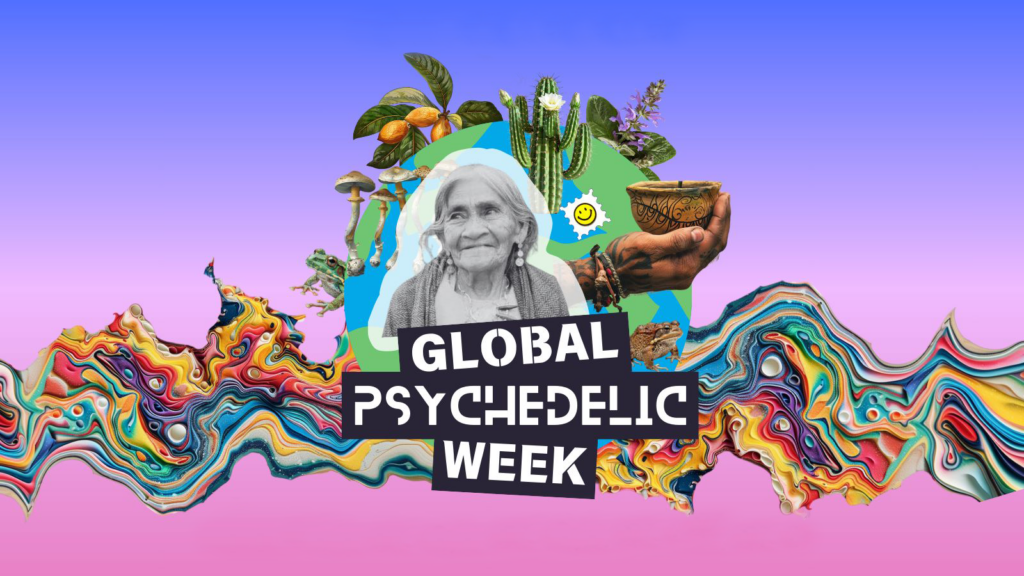Reflecting on Occupy could be seen as a redundant exercise, given that the movement itself was born of reflection. Plenty would disagree, and insist it was frustration – boiled over from one too many pink slips, foreclosed homes or soul-crushing commercials – that sparked Occupy’s flame. True as this may be, the serious contemplation and reexamination of long-held assumptions required for the movement’s signature disregard of even the most sacred cows can’t be discounted either. While 99% of people on the planet may indeed be in the same rough boat economically, it can also be made fairly apparent from a typical afternoon stroll that an equal percentage of folks aren’t engaged in this type of reflecting.
And yet there is this unmistakable sense that something is afoot – a larger awakening, which we perhaps feel because of our own individual awakening, and each of us has our own stories. For me, it started a year ago at this time, when I simply resolved to start blogging about all the new ideas and occurrences making themselves known to me. It's not that I thought these ideas were anything novel or unique – I soon realized many had been existing on this plane all along – but they were unique to me, and felt necessary to document. And lo and behold, as I sat down to write my first post, here arrived on cue a movement which embodied all those ideas – a vehicle to house and give forward momentum to all the issues I had been planning to write about months prior.
Of course, an increasingly militarized police state – which we are now becoming more conscious of – smashed the windows and slit the tires of this vehicle, dispersing the individual Occupy camps which had sprung up like goosebumps all over the world. But while this dispersal accomplished its goal of rendering Zuccotti and its various satellites vacant, another thing it dispersed was the seeds of the movement – scattering them far and wide in various corners, affording them shade and fertile ground in which to nurture themselves and grow.
Where Are We?
It’s an understandable tendency some might have, given the recent first anniversary of Occupy, to ask such blunt questions as "What has Occupy accomplished?" But in true Occupy spirit, the best way to tackle this question is to assume nothing and reflect on the question itself. Traditionally, an accomplishment for a social movement would imply something concrete – getting your candidate elected, changing a law, making national headlines. Helping one home avoid foreclosure, or starting one unassuming community garden, or more recently – standing with striking Chicago teachers and unionizing bakery chain workers, and standing against Monsanto – may not register in the national psyche or sound like a good response to the above question. But added together, they comprise a response nonetheless, whether or not they can be quantified in a study or summed up in a few sentences.
Another stock response to the question of Occupy's accomplishments, often made by Occupy sympathizers, is that it "changed the conversation." But again, what does this mean, and whose conversation has been changed? The mass media's? The conversation in our minds? Perhaps the real conversation of consequence today isn't whether it’s a good thing if economic inequality is now discussed every once in a while by a few talking heads on cable news, but whether or not any conversation on cable news has any relevance anymore?
I was fortunate to be able to attend the Occupy National Gathering in Philly, where one day, while exiting the park after a day of workshops on everything from ecovillages to domestic spying, I was asked this very question of accomplishment from a disgruntled onlooker, along with a few other pointed nuggets such as “What are you all doing here?” and “What do you all hope to achieve?” I was frozen.
It may have been because I’m more of a writer than a talker, but I think it's indicative of one of the key characteristics and challenges of this moment that I – someone who deeply understood this movement from the first time I read its name on the internet – was unable to form a coherent response to this man. Obviously, the issue here wasn’t a lack for response, but too much of a surplus, reminding me of that part in Manufacturing Consent where Chomsky notes how if the captains of the airwaves were a tad shrewder, they’d put dissidents on their shows left and right, because of the capacity intermittent commercial breaks have for making nuanced introspection appear more like deranged rambling (picture Terence McKenna on CNN).
This is the dilemma for Occupy – that truth is profoundly unconcerned with existing in sound bite form or fitting a pre-established narrative. It may sometimes. Other times it will make its own narrative. The world, on the other hand, already has its narrative and demands it be adhered to. It demands sound bites, linearity and slick, easy to categorize packaging. So Occupy is stuck between a rock and a hard place. It must somehow find a way to express to the world its essential message – that truth takes precedent over form – and in the beginning, it must present this message in slick packaging. An overwhelming task this may seem, but we’re getting better at it.
Nowhere was this nuanced truth embedded in Occupy’s DNA more readily observable than at the visioning process on the National Gathering’s final day, where groups of three jotted down their visions of a better world, then combined their vision with other groups of three, and so on until one monstrous vision emerged. In my initial group was an objectivist, as well as someone who described himself as a libertarian who cared about the world, a testament to another paradox – Occupy speaks to collectivism and community living, but also for freedom and individuality. Perhaps now, in this time of transformation, the dividing line between these 2 seeming opposites is becoming more fuzzy.
As for the visioning document that resulted from this process? It was equally fuzzy, making it all the more surprising that upon reading it, after having a laugh at some of the more naive and whimsical entries, clarity can be gained – clarity on the true barely fathomable depths of our problems, clarity that they will not be solved by these little politicians yapping back and forth, and clarity on what possible solutions might look like.
The Future
So what might these solutions look like? In thinking about what the future can and should be for Occupy, let us reflect, once again, on this movement’s identity – a movement of the 99%. Granted, much energy and effort has been spent by occupiers naming the evils of the 1%, pinning blame for all our multitude misfortunes on these cagey elites. Justified as their accusations are, an increasing number now recognize this approach as increasingly passed its time.
If Occupy seeks a world of unity and wisdom, this means setting aside the old ways of conflict and separateness. Indeed, it is the wholesale buying into of this notion of separateness – characterized most vividly by the greed economy and the now hackneyed societal exhortation for one to “make something of oneself” – that allows for the existence of a 1% in the first place. Focusing on the demise of the 1%, rather than the rise of the 99%, is a self-defeating act – affirming the existing structural arrangement while abdicating the responsibility to build a new one.
Further, there is no greater slight to an enemy than the one which refuses to acknowledge it as such – one which sees it not as something to overcome, but as something entirely outmoded and irrelevant. And while most of us do still live under the parameters of the merchants of ego – trading in their currency, running on their fuel, working for their ends – this reality need not get in the way of our dutifully going about our work of creating the better world in each of our respective spheres of influence, artfully and happily defusing the landmines of ignorance along the way.
Make no mistake, this isn’t about Occupy. This is about our individual and collective awakening of which Occupy is just one manifestation, along with the other various uprisings all over the world as well as other locally-based movements such as Transition Towns and Evolver Spores. What made Occupy unique was its capturing of the American public’s notoriously hard to capture imagination – even if only for a fleeting moment, it was impressive. The other thing that made it unique was its ability to activate the activism of a broad spectrum of people and perspectives – finally, saying the system sucks wasn’t just something some angst-ridden teenager said. It had traction, and there now opened ways for you to get involved, in whatever way you always felt was your strength but for whatever reason had always kept bottled up. You could, and can, let it out of the bottle now.
But I admit, there are times when I participate in or watch a GA and get the feeling I’m on a runaway train that has no clue where it’s going, piloted by people with varying degrees of mental intoxication, and visions with varying degrees of compatibility. I honestly don’t know how big of a role Occupy will ultimately end up playing – how much real estate it will be able to lay claim to when credit is doled out by an awakened world reflecting on this time – but that’s obviously irrelevant compared to the awakening itself, which can’t be denied. It makes no difference if every GA eventually dwindles down to zero. The idea has been birthed and the moment has arrived. A growing number of revolutionaries – including you – are developing the faculty to hear the call of their inner voice, becoming more adept at reconciling the inner and outer worlds, and more confident in allowing that reconciliation to inform their actions.
These actions will and are becoming more refined over time, moving from, say, supporting unions to creating worker co-ops. But they’ll all have the following shared core purposes – reaching through to the complacent, raising the consciousness of the population, and achieving a more capable, aware and resilient 99%, so as to forgo the need for a 1%, and ultimately, the need for such a distinction.
Image by DoctorTongs, courtesy of Creative Commons licensing.















